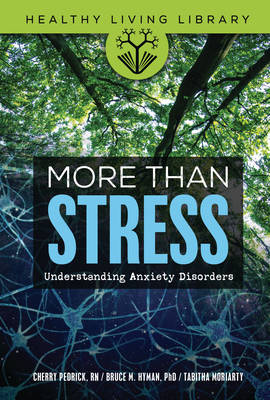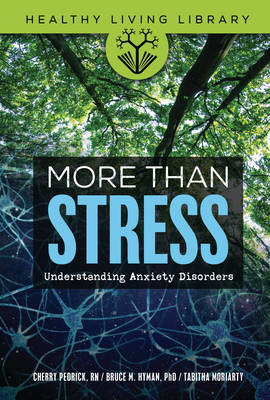
- Afhalen na 1 uur in een winkel met voorraad
- Gratis thuislevering in België vanaf € 30
- Ruim aanbod met 7 miljoen producten
- Afhalen na 1 uur in een winkel met voorraad
- Gratis thuislevering in België vanaf € 30
- Ruim aanbod met 7 miljoen producten
Omschrijving
Roughly one in three teens in the United States will experience an anxiety disorder.
Given the pressures of standardized testing, extracurricular activities, working, and fitting in, this statistic may not seem surprising. Young people have a lot on their plate, and the pressure to succeed can be intense. But anxiety is more than just stress. It doesn't go away once a test is over or the big game is won. Anxiety is excessive and consistently interferes with daily life.
A person may develop an anxiety disorder for a variety of reasons. Psychologists are continually learning more about how our brain chemistry, genetics, and life experiences become important factors that contribute to an anxiety disorder.
This informative guide outlines the causes, symptoms, and diagnosis of panic disorder, social phobia, obsessive-compulsive disorder, post-traumatic stress disorder, and other anxiety disorders. Additionally, it offers coping strategies and treatment options for those with such disorders.
Specificaties
Betrokkenen
- Auteur(s):
- Uitgeverij:
Inhoud
- Aantal bladzijden:
- 104
- Taal:
- Engels
- Reeks:
- Leeftijd:
Eigenschappen
- Productcode (EAN):
- 9781541588936
- Verschijningsdatum:
- 6/09/2022
- Uitvoering:
- Hardcover
- Formaat:
- Bibliotheekbinding
- Afmetingen:
- 162 mm x 230 mm
- Gewicht:
- 367 g

Alleen bij Standaard Boekhandel
Beoordelingen
We publiceren alleen reviews die voldoen aan de voorwaarden voor reviews. Bekijk onze voorwaarden voor reviews.











